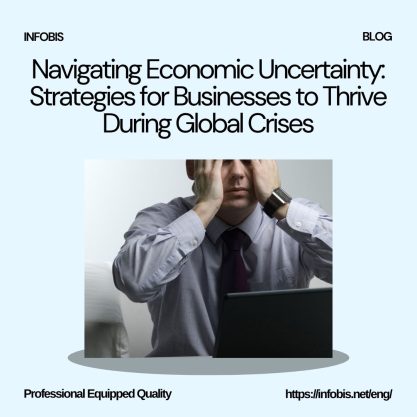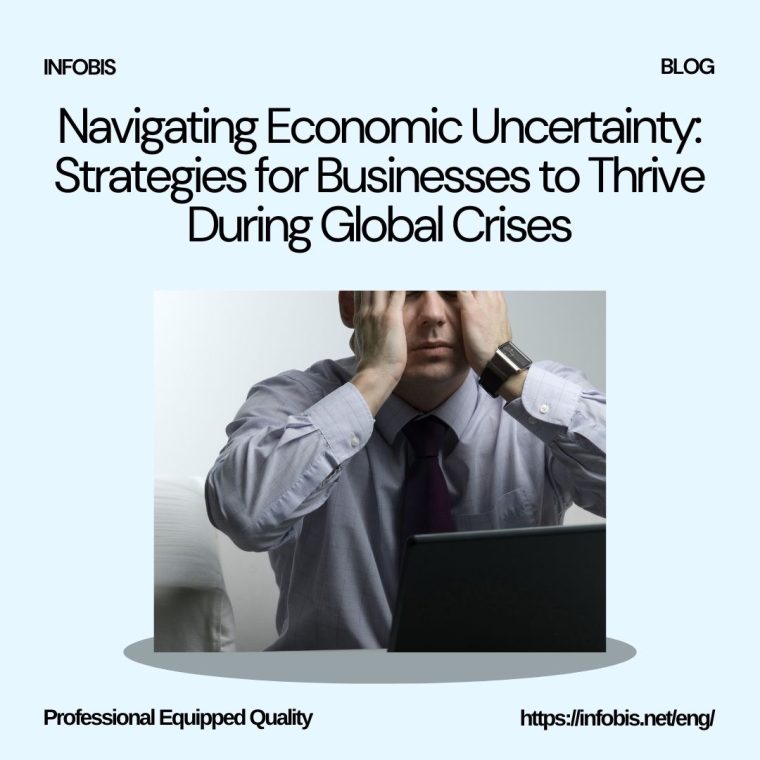
Navigating Economic Uncertainty: Strategies for Businesses to Thrive During Global Crises
In today’s interconnected world, global crises—whether economic, political, or health-related—can have far-reaching impacts on businesses. As companies face unprecedented challenges, it is crucial to adopt strategies that ensure resilience and sustainability.
Understanding the Nature of Global Crises
Global crises come in various forms, including economic downturns, pandemics, political instability, and environmental disasters. Each type presents unique challenges that can disrupt supply chains, reduce consumer demand, and create financial instability. Understanding these different crises and their potential impacts is the first step in developing effective strategies.

Strategies for Businesses to Survive and Thrive
- Diversification of Supply Chains: To mitigate the risks of supply chain disruptions, businesses should diversify their suppliers across different regions. This approach reduces dependency on a single source and enhances supply chain resilience.
- Financial Contingency Planning: Establishing a financial contingency plan is vital. This includes maintaining a healthy cash reserve, securing lines of credit, and optimizing cash flow management to weather periods of reduced revenue.
- Digital Transformation: Embracing digital tools and platforms can help businesses adapt quickly to changing market conditions. For instance, e-commerce and remote work solutions have proven essential during the COVID-19 pandemic.
- Agility and Flexibility: Businesses must remain agile to respond swiftly to unforeseen challenges. This includes adapting business models, re-evaluating market strategies, and staying responsive to customer needs.
- Employee Well-being and Support: During crises, employee morale and productivity can suffer. Providing robust support systems, mental health resources, and clear communication can help maintain a motivated and resilient workforce.
Long-term Planning and Resilience
While immediate responses are necessary, businesses must also focus on long-term resilience. This involves building a culture of innovation, fostering strong relationships with stakeholders, and continuously monitoring and adapting to global trends.
Conclusion
In an era of uncertainty, businesses that proactively develop strategies to navigate global crises are better positioned to survive and thrive. By focusing on diversification, digital transformation, and employee support, companies can turn challenges into opportunities for growth and resilience.




